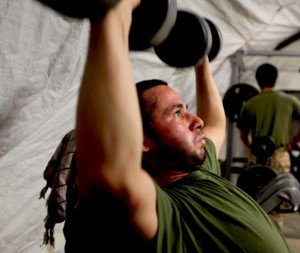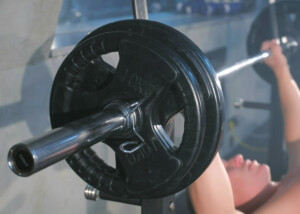
Lifting weights can cause a number of injuries involving the shoulder and back, and many weightlifters wonder if a winged scapula can be one such injury.
Especially of concern to some muscle building enthusiasts is whether or not the bench press—which puts a lot of stress on the shoulder joint—can cause the development of a winged scapula over time.
Can lifting weights cause a winged scapula?
“There are several causes of scapular winging,” begins John-Paul H. Rue, MD, orthopedic sports medicine surgeon with Orthopedics and Joint Replacement at Mercy Medical Center in Baltimore, MD.
Dr. Rue explains, “These may be due to injury or abnormal function of the muscles attached to the scapula, or injury to the nerves that supply the impulses to these muscles.
“It can also be due to dysfunction of the muscles around the shoulder, such as in cases of chronic shoulder pain or instability.
“This is termed ‘secondary scapular winging’ or ‘scapular dyskinesia’ due to long-term dysfunction of the muscles from improper or abnormal movement of the shoulder in an attempt to compensate for the painful or unstable shoulder.
“It would not be typical to cause scapular winging from weightlifting, but if you had shoulder pain or shoulder instability from weightlifting, you may develop scapular winging secondarily.”
In other words, a person with a normal shoulder, who performs a heavy set of weightlifting such as the bench press, isn’t going to suddenly wing their scapula by the end of the last set.
But if over time, they’ve been experiencing shoulder instability as Dr. Rue has described, then the weightlifting can cause a progressive situation which leads to a winged scapula.
You’re more likely to injure a tendon in your rotator cuff from lifting heavy weights than you are to create changes that may lead to scapular winging.

 Dr. Rue
Dr. Rue







































